Samsung Galaxy Tab S11 Ultra review
Samsung's larger than life tablet tweaks the formula as it continues to offer a laptop-rivalling experience
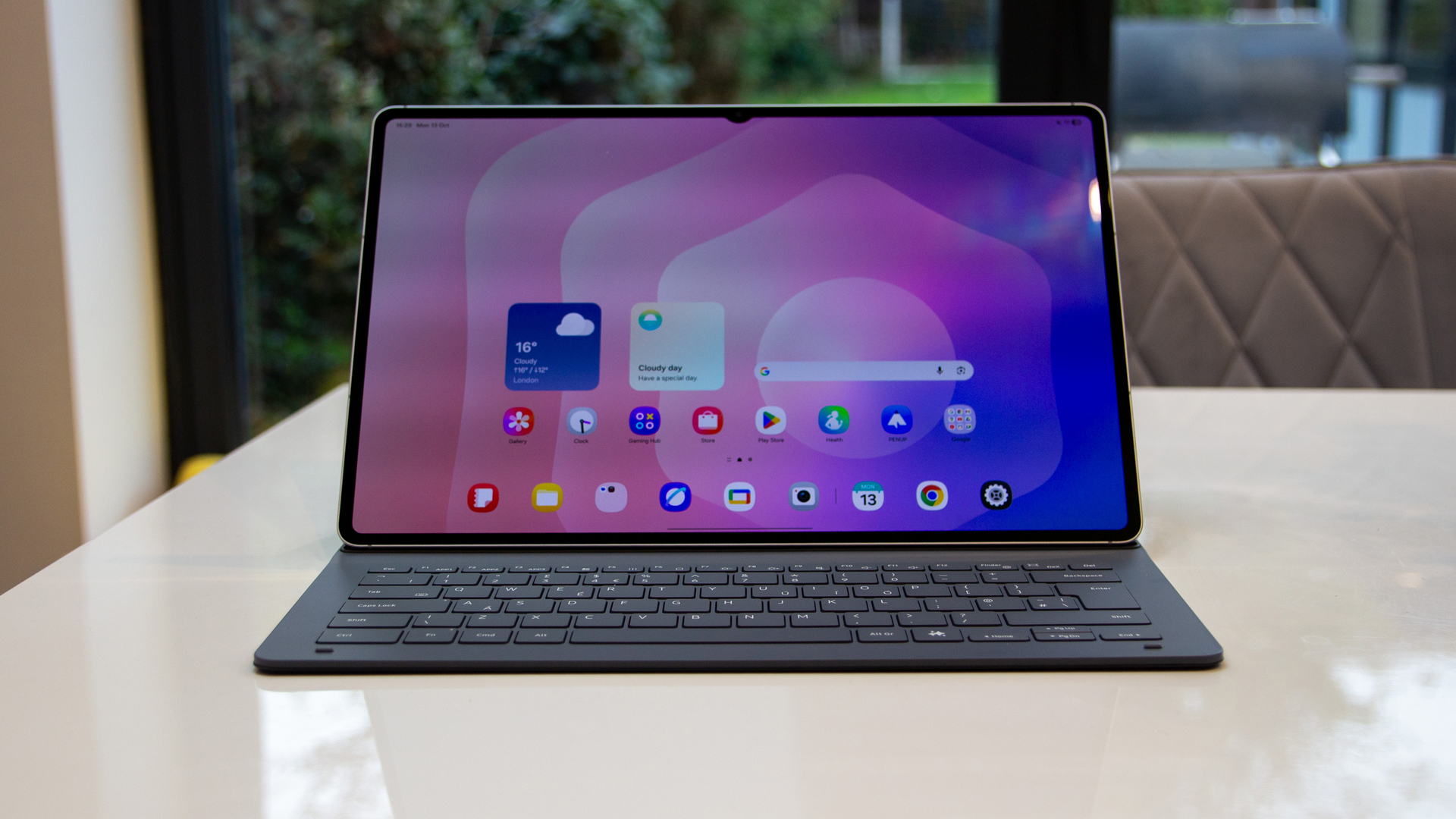

The Samsung Galaxy Tab S11 Ultra offers a premium experience on the big screen. That 14.6-inch display is truly fantastic, there's loads of power on tap, and battery life is really impressive too. Samsung loads the tablet with practical software like DeX in a slim package. But it's really expensive – and that huge screen is almost impossible to use without a keyboard and case. While the display experience is great, you have to ask yourself what you're going to use it for – and whether a laptop might actually be a cheaper alternative to better suit your needs.
-
+
Stunning 14.6-inch display
-
+
Marvellously entertaining
-
+
Strong battery life
-
-
Size makes it unwieldy for all use-cases
-
-
S Pen gets a downgrade
-
-
It's a lot of money
Why you can trust T3

Samsung's commitment to tablets has paid dividends, with the company being behind some of the best tablets in the Android space. While others dropped out of the segment only to return mid-pandemic once demand returned, Samsung has remained in the driving seat.
It's no surprise that Samsung is one of the top suppliers of tablets globally and one of the leading alternatives to Apple's iPad range. With this model, the Galaxy S11 Ultra, the closest you'll find to an iPad Pro rival – although the Samsung still dwarfs that.
First appearing in 2022, the Ultra continues as Samsung's flagship tablet. It's undeniably accomplished, but for many people, it'll simply be too large to practically use in any form other than with a keyboard case (at an additional charge, of course).
In a busy month of tech launches, the Galaxy Tab S11 Ultra became my travel companion, covering 58 hours of flying, 12 hours of layovers. It was the perfect testing ground for entertainment and to see if it could review like one of the best laptops – not just a tablet. So how did it stand up?
Price & Availability
The Samsung Galaxy Tab S11 Ultra is available globally and costs £1,199 / $1,199 / AU$2,099 – so the same price as the previous model at launch.
That's for the 12GB RAM and 256GB storage option – there are options for 16GB and up to 1TB of storage (at which point the price is frankly ridiculous).
Samsung is a big discounter, however, so reductions are expected – and with the real-time price tracker above you'll be able to make sure you're not missing out on a deal.
Get all the latest news, reviews, deals and buying guides on gorgeous tech, home and active products from the T3 experts
The Tab S11 Ultra comes with the S Pen in the box, but doesn't come with a keyboard case, which is an additional £199 – as you'll see, the keyboard (or some sort of case) is basically essential for use, so needs to be factored into the high price.
Galaxy Tab S10 Ultra vs S11 Ultra: What's new?
- Slimmer 5.1mm build
- Lighters 400g weight
- Single front camera
- New powerful hardware
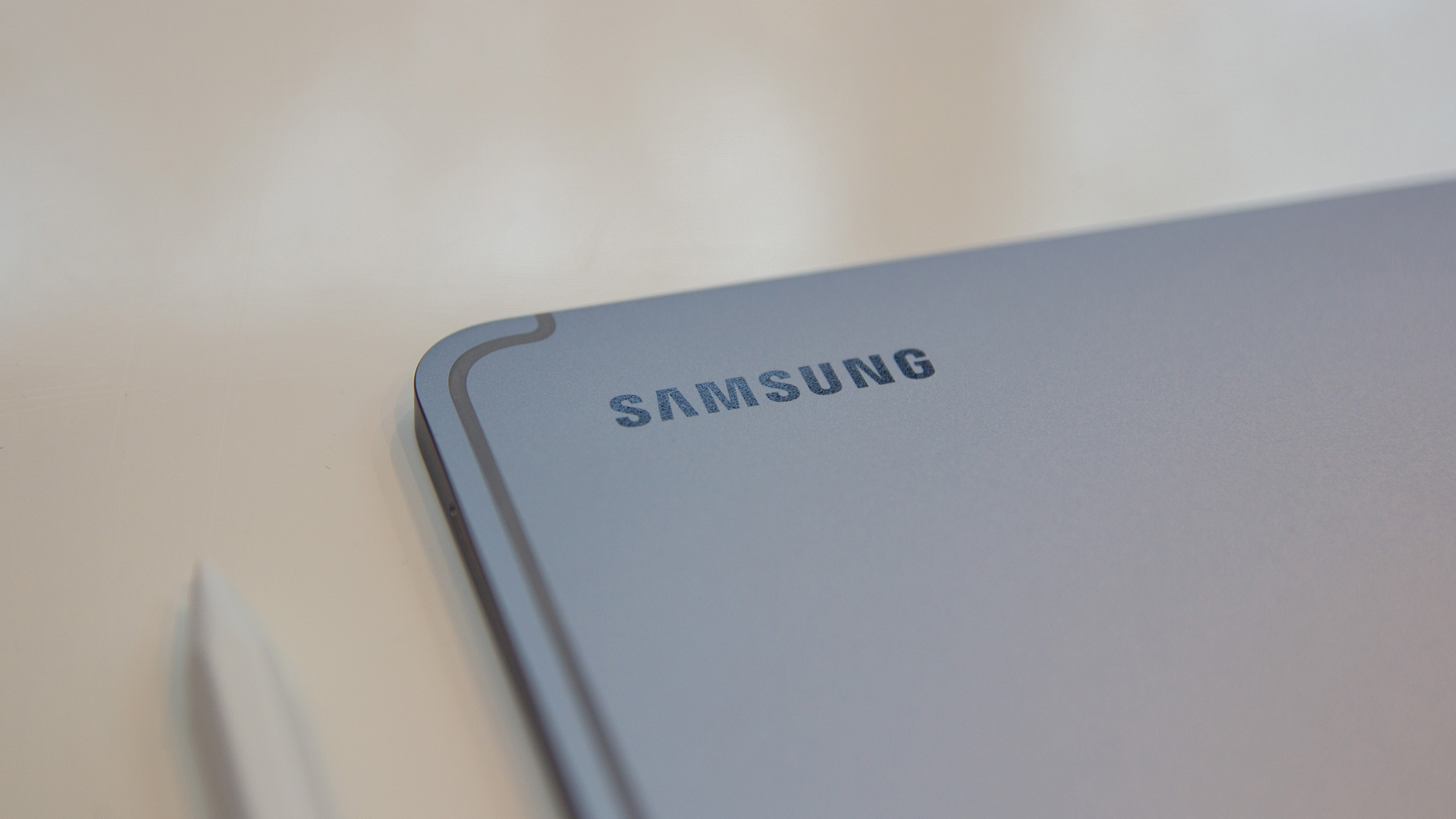
Previously sitting at 5.4mm, the reduction to 5.1mm takes a slim tablet even slimmer, but anyone who knows Samsung won't be surprised at all.
As competitive as Samsung is, there's no way it could avoid rivalling the iPad Pro's 5.1mm thickness, which perhaps explains the exact dimensions we see here.
The previous 718g weight is reduced to 692g, so it's a little lighter than it was, but the battery capacity has increased to 11,600mAh over the 11,200mAh of the Tab S10 Ultra.
Power comes from the MediaTek Dimensity 9400+, which is newer and more powerful.
The display gets a small bump in peak brightness, while the old front camera has been swapped for a single camera unit.
Finally, there's been a change to the S Pen, which no longer offers Bluetooth. It's redesigned, too, offering a slimmer form.
Design & Display
- 14.6-inch AMOLED 120Hz
- 2960 x 1848 pixels, 1600 nits
- 208.5 x 326.3 x 5.1mm, 962g
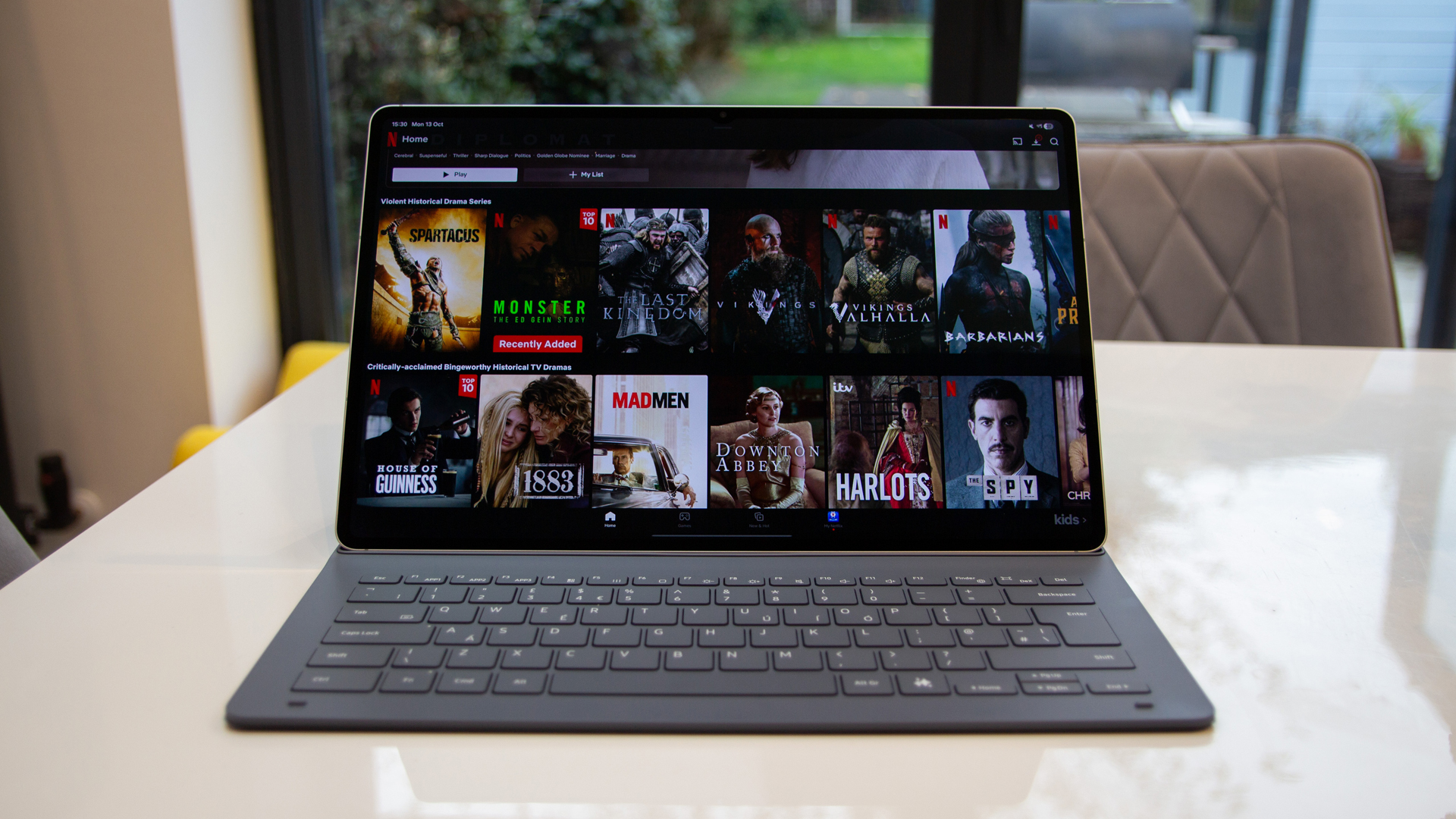
The design of Samsung's tablets hasn't evolved much, but where do you go with something that's basically a giant slab?
The slim body is finished in aluminium and about the only change from previous versions is that there's no longer a dedicated place on the rear where the S Pen magnetically attaches, along with its special trough.
Skinny squared edges remain, and there's no lack of premium feel to this tablet, but it's impossible to ignore the sheer size. Using this tablet as a standalone device just isn't as easy as a smaller tablet, like Samsung's Galaxy Tab S11, which is a more compact 11-inches instead.
The more I've used the Ultra, the more obvious it has become that using it without some sort of keyboard or case to prop it up is nigh-on impossible. You can't casually hold this 692g tablet for long periods. Sure, resting it on your knees in bed while you play Candy Crush is great, but trying to watch a movie on a plane without the Book Cover Keyboard Slim that I also tested is tricky.
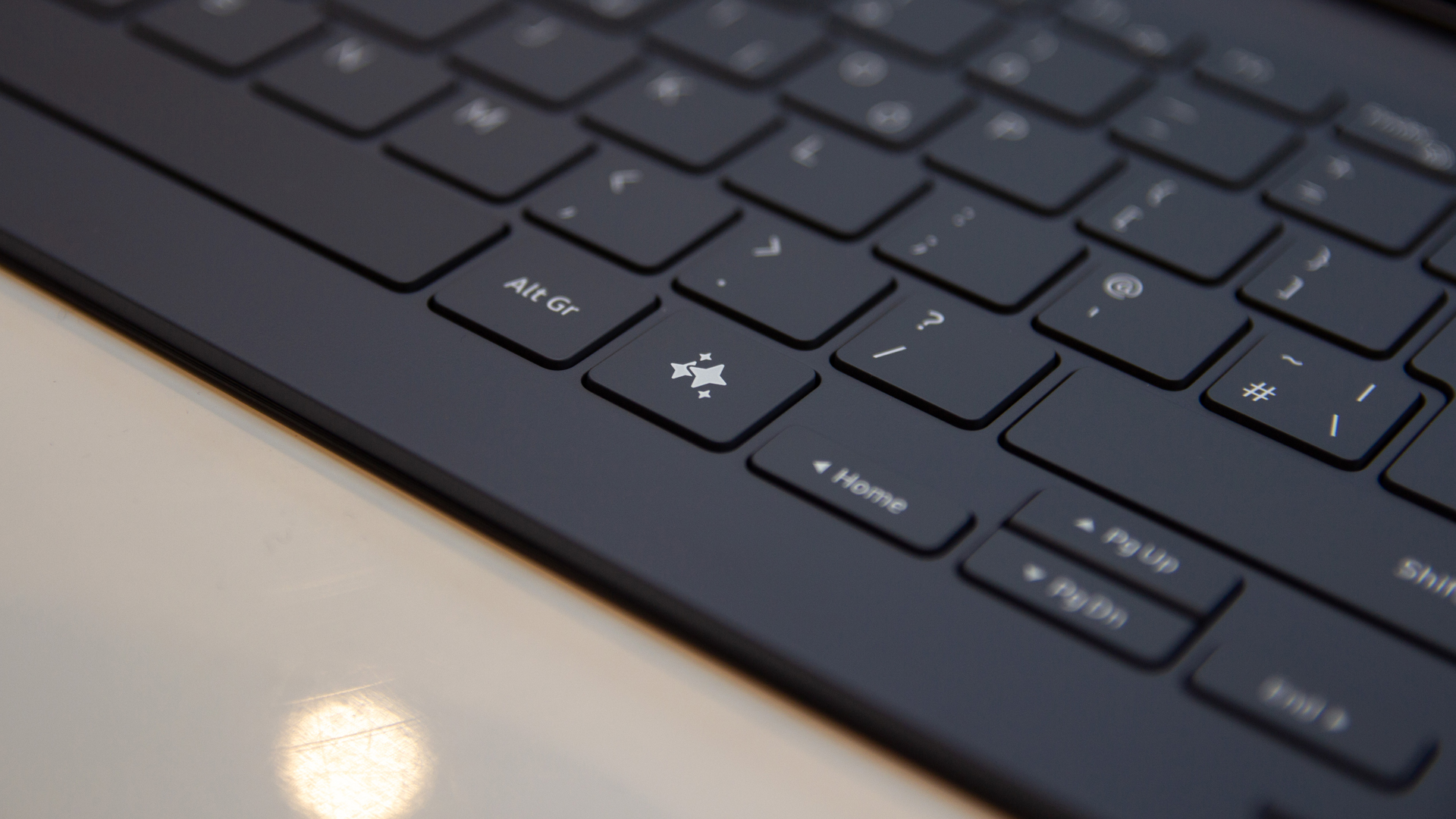
But the reason you buy this tablet is for the huge display that it offers, giving you more space for anything you choose to do. The AMOLED display is glorious – that's what Samsung does best – with a high resolution and a boosted peak brightness. The brightness might not sound like a lot in smartphone terms, but it rivals the best laptops.
That makes content look great, whether you're viewing two documents side by side, or just watching Netflix movies. Consuming video content on the Galaxy Tab S11 Ultra is a delight, outstripping typical in-flight entertainment systems for quality, and (for when not on a plane!) boosted by the quad speaker system that brings nice immersive audio.
Performance & Battery
- MediaTek Dimensity 9400+
- 12/16GB RAM, 256-1TB storage + microSD
- 11,600mAh battery, 45W charging
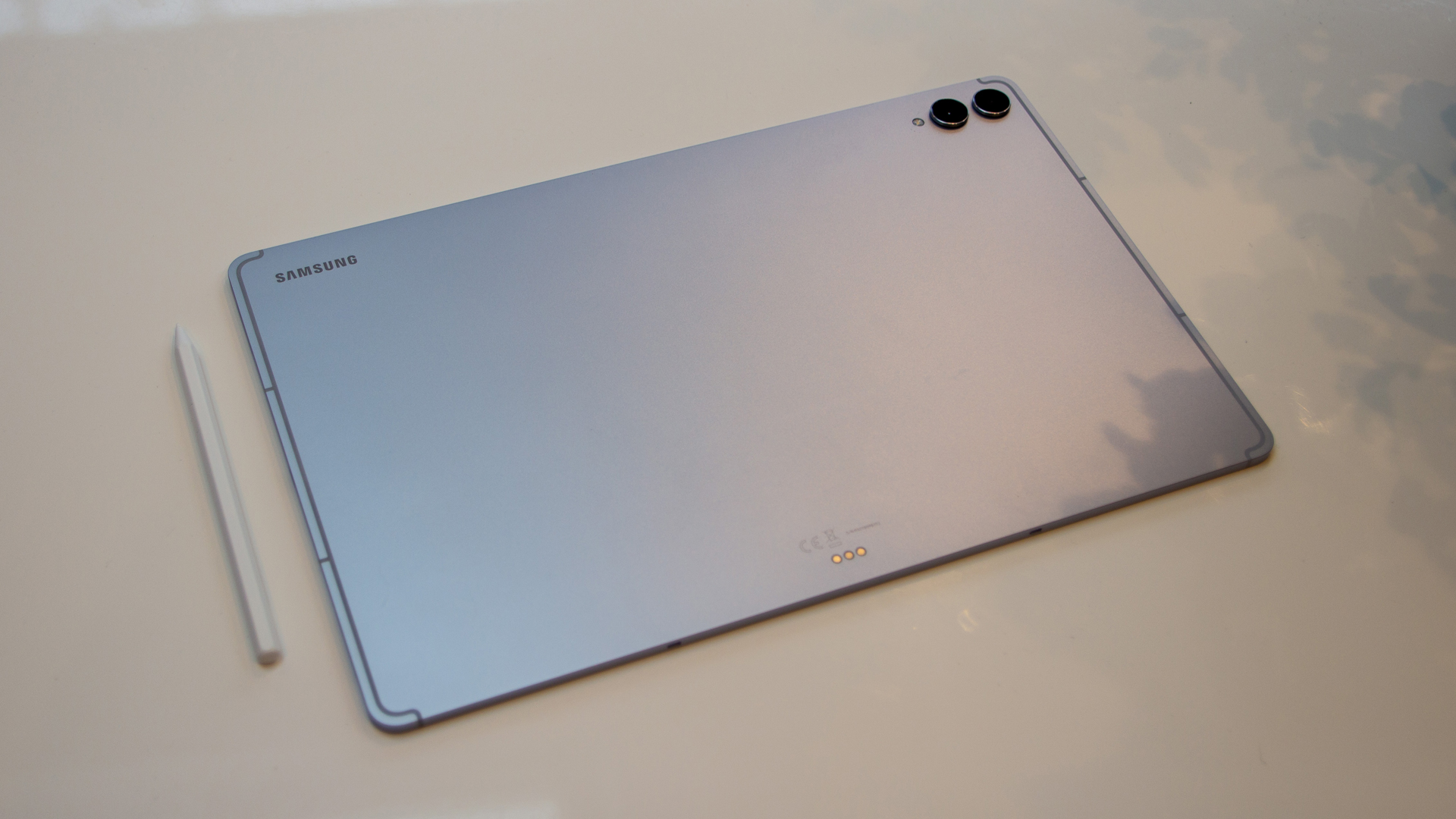
There's a step-up in the power available for the Galaxy Tab S11 Ultra, turning to the 3nm Dimensity 9400+. This is flagship-grade hardware that offers plenty of power for all the multitasking that Samsung expects you to do on a device of this type.
To be fair, if you're buying the Tab S11 Ultra and not multitasking then I'd wonder exactly what you might be doing with all that space.
I've found the Tab S11 Ultra to be smooth and fast in everything, whether that's diving into DeX mode to run apps in windows for easy access, or running intense games – although if you're not using a controller, anything other than casual gaming on the Tab S11 Ultra is difficult because of its size.
One of the useful additions is that this tablet supports microSD cards for additional storage up to 2TB. That means you can add a load of extra content or files, although note that this isn't adoptable storage, so it can't be used for apps.
With a larger battery, I found the Tab S11 Ultra to last a couple of days of use without needing a charge. Samsung says the official figure is 23 hours, and in mixed use I'd say that was accurate. I was impressed with how well it held charge too, rather than draining it in standby – which is sometimes a problem.
Ultimately, the Galaxy Tab S11 Ultra offers top-tier performance as a tablet and you won't be left wanting for battery life or performance.
Software & Features
- Android 16 and One UI 8
- Galaxy AI features and Gemini
- DeX desktop mode
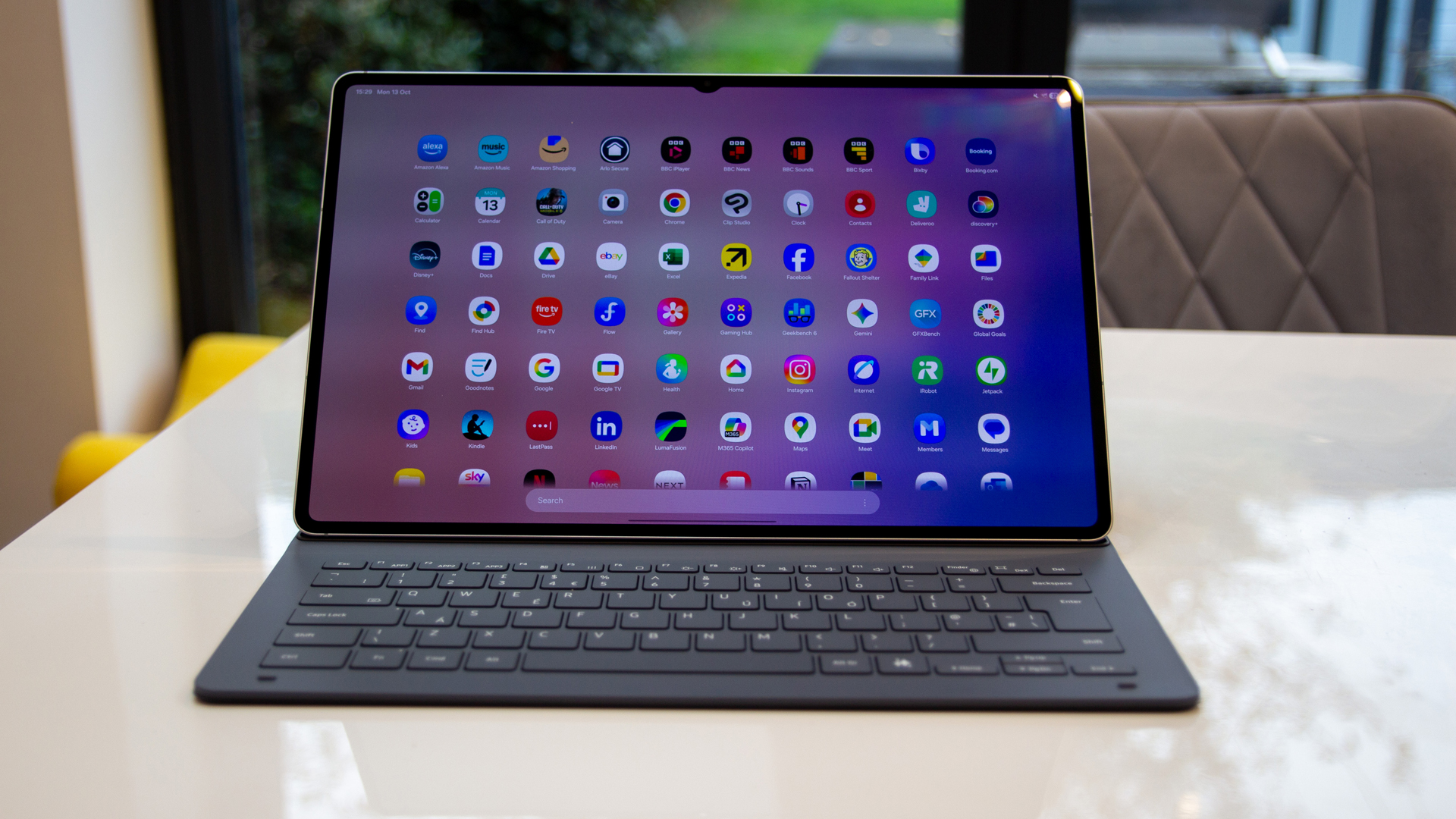
Samsung's commitment to tablets over the years has led to plenty of optimisations. From split-screen working to DeX (desktop experience) there are a number of ways to use multiple apps at the same time. That makes it easy to have one source of information that you can refer to, while working in another window.
DeX is easy to launch into, giving you a toolbar at the bottom of the display to quickly tap your frequently-used apps. You can drag and drop apps here, as well as create folders for quick access. Launching DeX is as simple as pressing and holding the bar that appears at the top of an app to pop it out into a window – and then dragging it to where you want. Subsequent apps will then open in windows.
It can be a little frustrating when you find yourself launching into DeX mode and getting stuck. You can tweak the Quick Settings DeX option to let you toggle off DeX – by default it wants to connect to a wireless monitor, but it's easy enough to change in the settings.
The S Pen has lost its Bluetooth features, so some might find it a little less capable than it was – and you can't use the old S Pen as a result. The new stylus is a passive pen, so there's no need to charge it.
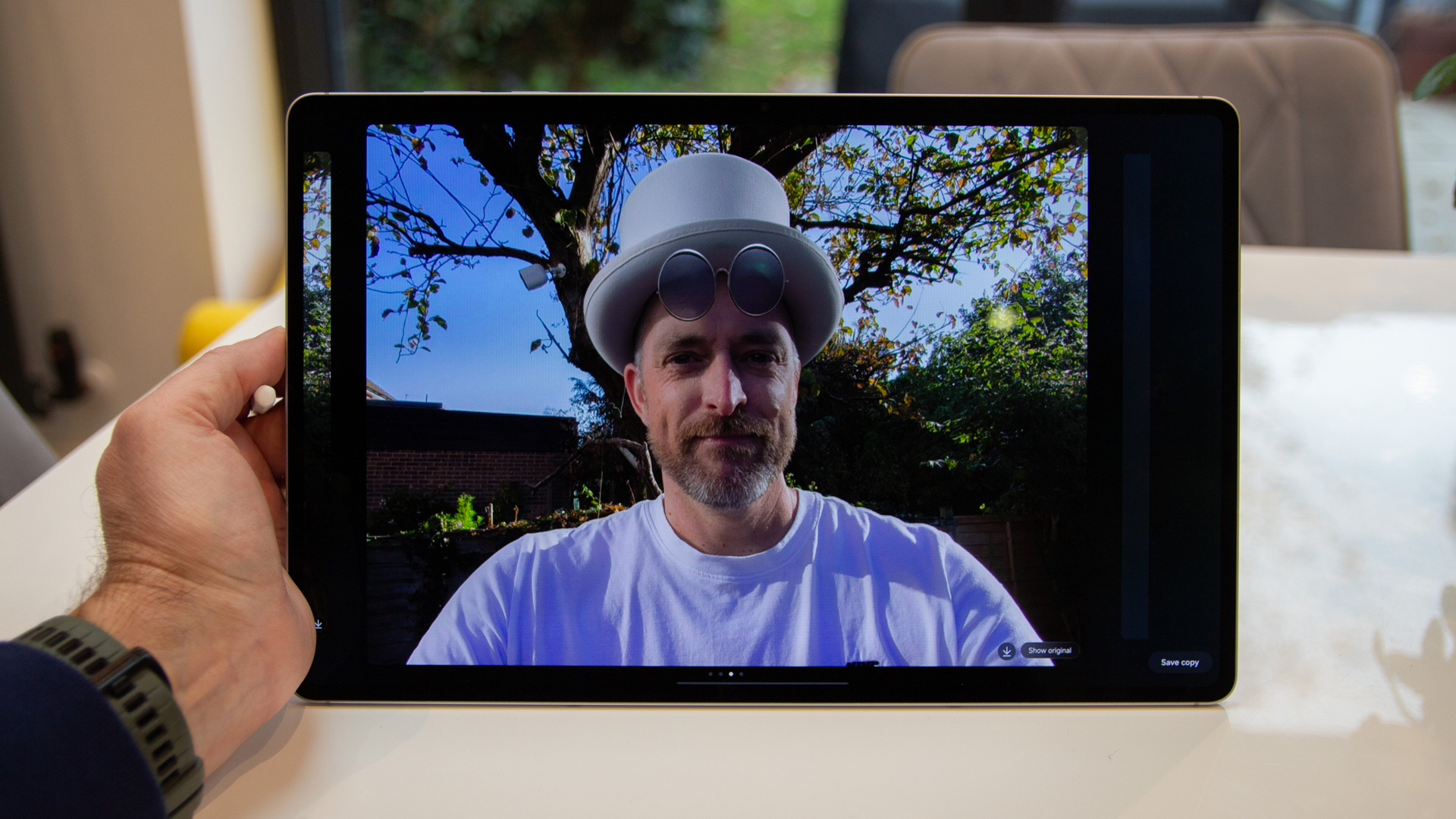
The S Pen can be used for writing and drawing, along with the Air Command feature to access tools. You can also write memos on the lock screen. Things have been "boosted" by Galaxy AI, which wants to help with writing and drawing, so you can turn a sketch into a picture really quickly.
Elsewhere, the experience is familiar Samsung fare. There is some duplication of apps, with Samsung including its own apps when Google apps might suffice, along with many other Samsung services. Many of these apps can be removed or hidden if you don't want them.
The Tab S11 Ultra makes for a great experience when browsing, because there's so much space, and using Microsoft 365 apps (which work really well on Android) with an accompanying keyboard makes for a laptop-rivalling experience.
The keyboard itself will prop the screen up at a comfortable angle for typing, with the keys offering a nice action. I found it quick to adapt typing to the keyboard, with enough shortcuts to control hardware for a more seamless experience.
I feel that the Android tablet app experience still doesn't quite compete with the fluidity of iPad apps, it just feels as though Android is still working towards a smartphone-first experience. That said, every app I ran offered a good experience and I didn't encounter any usage problems.
Should you buy a Samsung Galaxy Tab S11 Ultra?
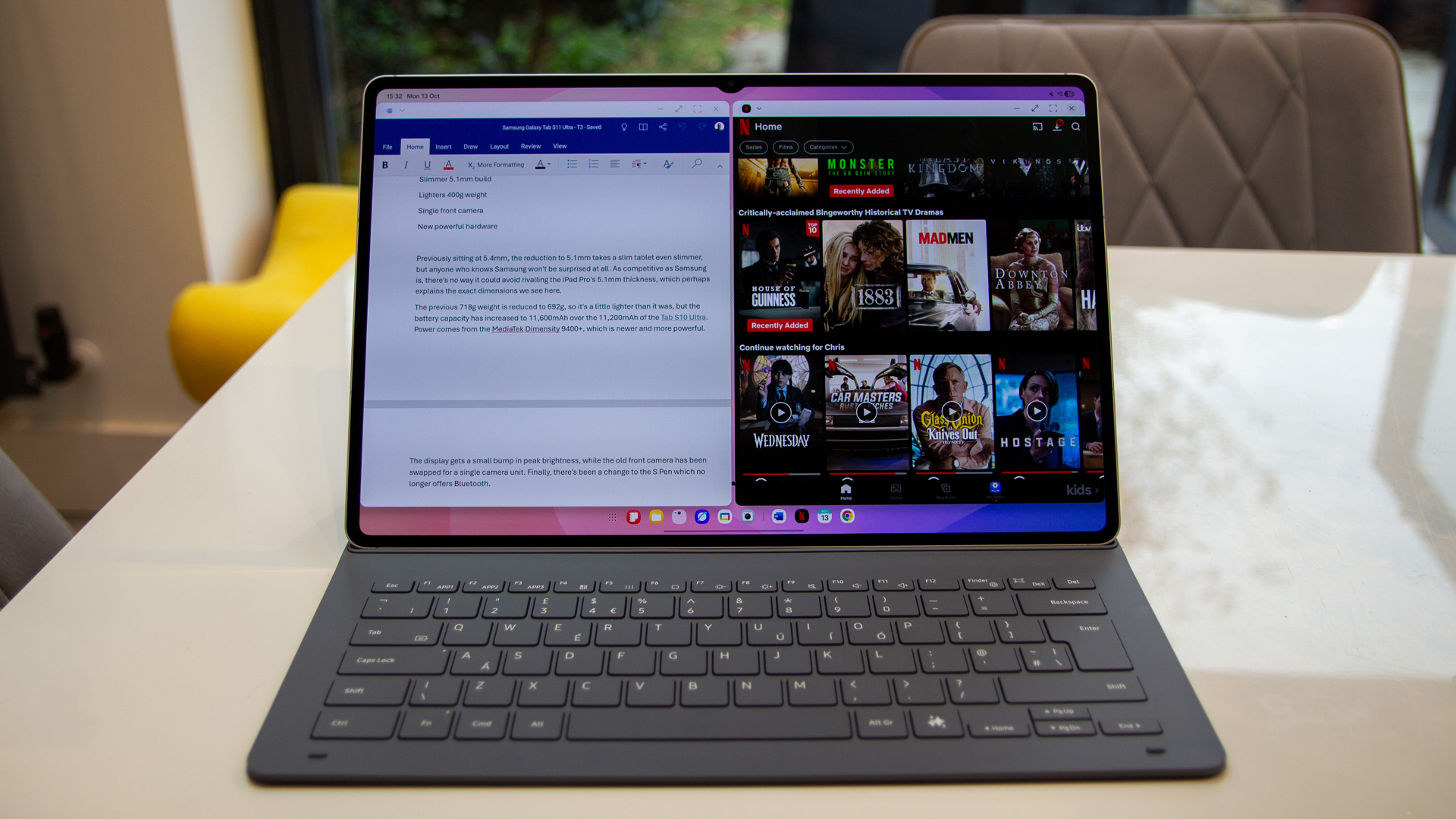
The Samsung Galaxy Tab S11 Ultra continues to offer a first-class tablet experience, mired only by the fact that it's probably too large for many owners – and too expensive.
Considering that you can buy a Galaxy Book for less (with a larger display), you might pause and ask yourself exactly what you're buying an Ultra tablet for.
From a content consumption perspective, the Galaxy Tab S11 Ultra is fantastic: it's hard to fault this 14.6-inch display, which is the clear reason for purchase.
As a laptop replacement, however, the Ultra struggles for the same reasons all tablets do – it can't run all the apps that a laptop can. But, with DeX connectivity, it's still a strong alternative.
Overall, the Galaxy Tab S11 Ultra is delightful to use. In the same breath, its main appeal – its sheer size – is the reason it can become impractical. I love the big-screen entertainment factor, but think a keyboard and case are a necessity.
Also consider
The same experience can be found in the Samsung Galaxy Tab S11, which has an 11-inch display and costs less. From a spec perspective it's much the same, but loses one of the cameras, while it's thicker and has a shorter battery life.
The iPad Pro would be a viable alternative to Samsung's tablet, similarly placed in a premium tier and offering a similar productivity focus. There's plenty of money to be saved by opting for the iPad Air instead, if you can live with the annoyance of losing Face ID, which gives seamless unlocking on the iPad Pro.
If you're after a compelling Android alternative, then the OnePlus Pad 3 offers a great experience at a great price.
Follow T3.com on Google News to keep our latest news, insights, and features at the top of your feeds!

Chris has been writing about consumer tech for over 15 years. Formerly the Editor-in-Chief of Pocket-lint, he's covered just about every product launched, witnessed the birth of Android, the evolution of 5G, and the drive towards electric cars. You name it and Chris has written about it, driven it or reviewed it. Now working as a freelance technology expert, Chris' experience sees him covering all aspects of smartphones, smart homes and anything else connected. Chris has been published in titles as diverse as Computer Active and Autocar, and regularly appears on BBC News, BBC Radio, Sky, Monocle and Times Radio. He was once even on The Apprentice... but we don't talk about that.
You must confirm your public display name before commenting
Please logout and then login again, you will then be prompted to enter your display name.
